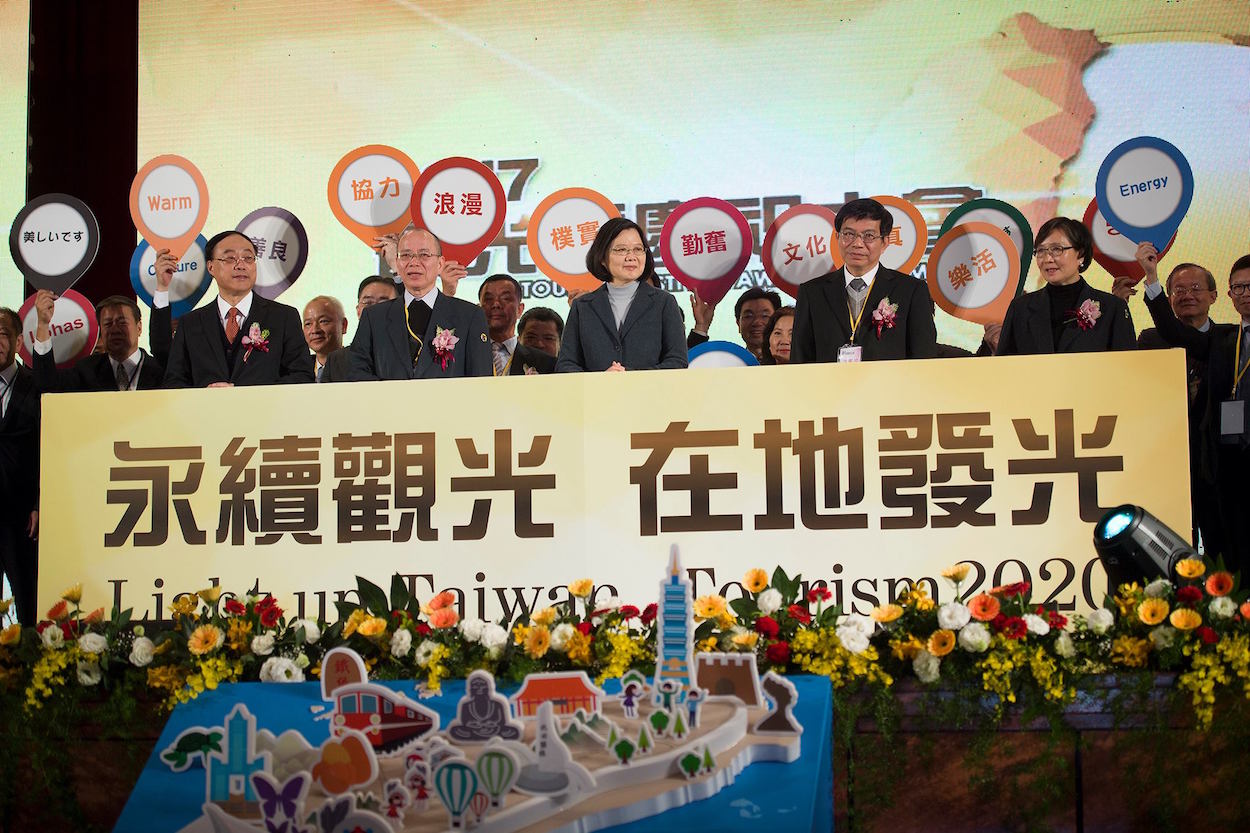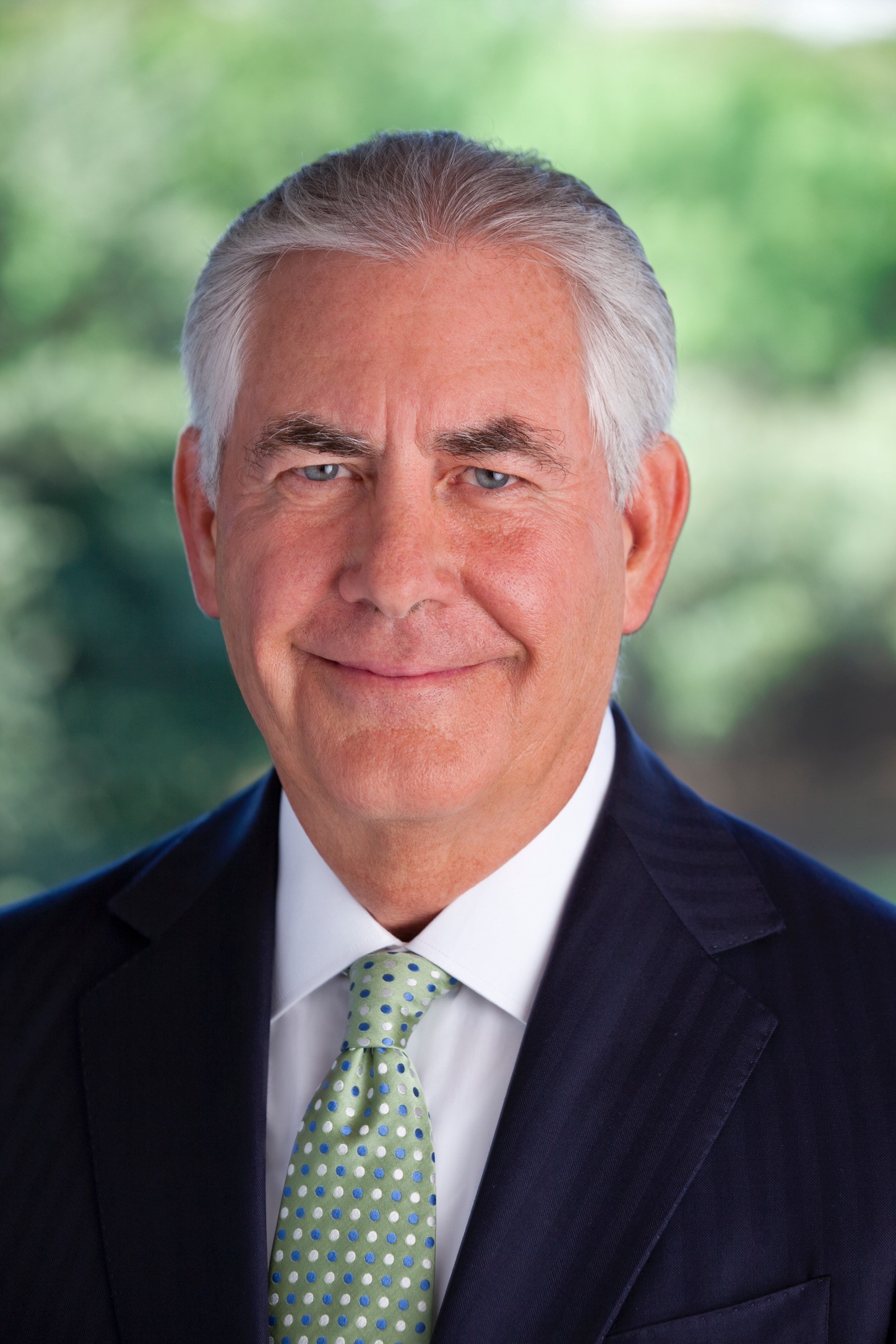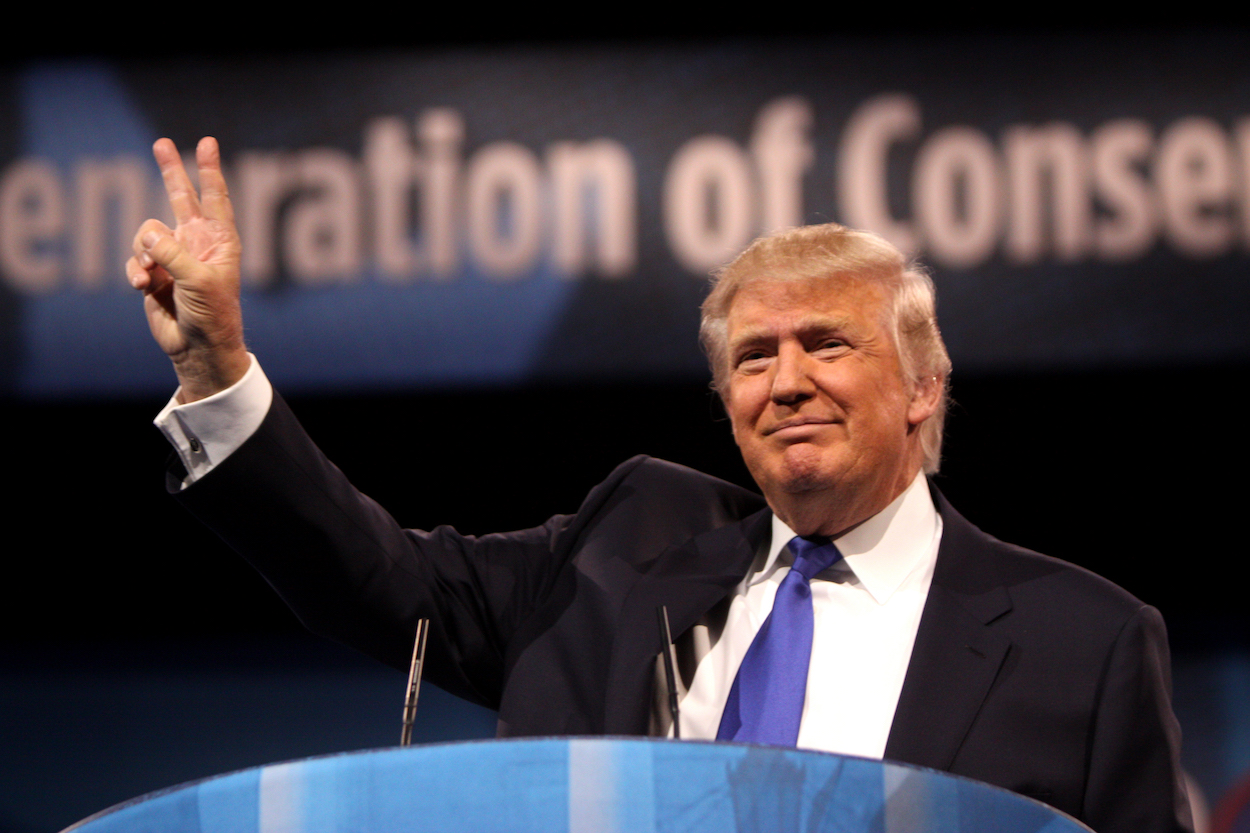by Garrett Dee
語言:
English
Photo Credit: Turk Internet and Michael Vadon/CC
AFTER A LENGTHY period of silence which had been regarded by some as a sign of hostility, US president Donald Trump and Chinese president Xi Jinping conducted their first phone call as heads of state on Thursday, February 9th. Although the two leaders discussed several topics related to the US-China relationship, the subject that has garnered the most attention is the discussion of the US position towards Taiwan, given that Trump’s contentious past statements on this issue had invited controversy and raised tensions in the bilateral relationship between America and China.
The wording of the White House Press Office release in regards to the phone call offers a glimpse at the unfolding of the conversation between the two heads of state, with the release stating that “President Trump agreed, at the request of President Xi, to honor our One China Policy.” That the words “at the request of President Xi” were included in the release show that this was a point of deliberation between the two presidents, and that a compromise was eventually reached at the request of the Chinese which left both sides sufficiently satisfied for the time being.
The Chinese official response to the phone call also stressed the cooperative nature of the conversation, stating that the Chinese government looked forward to working with the United States in the areas of trade, energy, and global stability, among other things. Trump had previously hinted at using negotiability on the US position on the “One China Policy” as a way to extract concessions from China in the area of trade policy. Therefore it is not unimaginable, given the level of satisfaction both sides have expressed in the aftermath of the call, that he was at least partially successful in reaching a compromise.
In the aftermath of last year’s brief phone conversation between then president-elect Trump and Taiwanese president Tsai Ing-wen, many within the political commentariat on Taiwan advanced the idea that the Trump administration would reverse the weakening of US-Taiwan ties that had been gradually occurring over previous administrations. This was based partially on a perhaps overly-idealistic notion that that phone call was the beginning of a concerted effort on the part of the Trump administration to raise Taiwan’s profile internationally and normalize flagging relations between Taipei and Washington.
 Tsai Ing-Wen. Photo credit: Presidential Office
Tsai Ing-Wen. Photo credit: Presidential Office
At the time, however, this publication took the position that the coming Trump administration’s seeming turnabout on Taiwan should be treated with skepticism, a position which was criticized as being overly hasty in an attempt to discredit Trump at the expense of Taiwan. This position was taken on the basis that Donald Trump had shown not just a willingness, but an outright propensity for duplicity both during his presidential campaign and, later, into the early days of his term in office. This is not an ideological position, as his lies and fabrications have been well-documented by many reputable media outlets and need not be reiterated here.
Thus, skepticism of the Trump administration’s intentions towards Taiwan was the basis of that position and continues to be the position taken in regards to this most recent Trump-Xi phone call. Given Trump’s previous statements on taking a hard line towards Chinese policy deemed to harm American economic growth, it is hard to imagine that he would have acquiesced to their demands on the “One China Policy” without having secured their cooperation in other areas he considers to be of higher importance to the US than Taiwan.
The “One China Policy” works predominantly in China’s favor, as it precludes recognition of both the PRC and the ROC. While many have claimed it is the bedrock to stability in the region, it is also the framework under which the siphoning off of support for Taiwan has incrementally occurred. In the modern international system, the majority of countries, including the United States, have chosen to recognize the PRC over the ROC, given China’s dominant role in the international economy. That both Trump and US Secretary of State Rex Tillerson have expressed their reticence (Trump having now done so to the Chinese president directly) to change the US stance on the “One China Policy” seems to show a reluctance to alter this system in Taiwan’s favor.
Undergirding the “One China Policy” is the so-called “One China Principle”, a historical and outdated conception of Taiwanese independence that draws on the PRC-ROC conflict following the Chinese Civil War and has not been updated to fit the conditions of the present. Under the conception of the “One China Principle”, a conception which is also supported by the KMT, Taiwan is an unalienable part of China, with the difference between the positions of the KMT and the Chinese Communist Party being the interpretation of which China that might be.
 Xi Jinping. Photo credit: Narendra Modi/Flickr
Xi Jinping. Photo credit: Narendra Modi/Flickr
However, this anachronistic notion has circumscribed US policy towards Taiwan for decades, hampering Taiwan’s ability to advocate for itself internationally. It is under this model that the moniker “Chinese Taipei” and the accompanying restrictions on Taiwanese ascendancy to critical international organizations arose. Additionally, this principle does not recognize the rising tide of Taiwanese national identity and the desire of a growing portion of Taiwanese for their own national identity separate from the ROC model, a desire that is becoming more of a mainstream force in Taiwanese politics. But even for those who are more supportive of “ROC independence” (華獨) over “Taiwan independence” (台獨), the present actions of the Trump administration do not bode well for the future prospects of an increased role for Taiwan internationally.
Within the Trump administration, there are those who are ideological-motivated by a view that the United States and China are irreconcilable enemies on the international stage, and that US-China policy must be geared towards strengthening US position against an inevitable conflict between the two. Such is the case for both Peter Navarro and Steve Bannon, two of Trump’s closest advisors on China policy, both of whom have an almost evangelical disposition for heralding the coming conflict with China, the former on the basis of economic policy, the later on the basis of a civilizational clash between Judeo-Christian culture as represented by the US and all other cultures. For these people, Taiwan may be merely an afterthought in their plans for a future US-China showdown.
Trump himself, however, does not seem to share the same ideological propensities, given his entirely different background, having entered politics from the business sector of American society. His actions, instead, seem to indicate that he will change his positions as needed in order to fit his goal of placing the US in the most advantageous bargaining position internationally, a goal not altogether indefensible seeing as he is, of course, the US president. Most notably, Trump seems to want to challenge the notion that it is important to tread delicately in regards to China, and seems to chafe under the narrative that China is the new “indispensable nation”, whose feelings countries must avoid hurting at all costs. In this regards, he has vocally criticized the current state of international affairs as being disproportionately favorable to China in terms of economic advantage.
Indeed, Trump seems to view China from a perspective of almost purely economic calculus, which, once again, is not surprising given his background. He repeatedly lambasts China almost exclusively on the issue of trade, constantly labeling China a currency manipulator. Notably, unlike his predecessors from both parties, Trump has remained almost completely silent in regards to democratic values or human rights issues in China. Tillerson, who comes from a similar background as Trump in regards to having spent his career in the private sector, seems to similarly lack a strong ideological view of foreign policy. While some have pointed to Tillerson’s statements that Taiwan would not be used as a bargaining chip against China as evidence of the Trump administration’s friendly intentions towards Taiwan, these comments came before Thursday’s phone call, and may have served to assuage Taiwanese anxiety rather than spell out the administration’s concrete support for Taiwan.
 Rex Tillerson. Photo credit: Office of the President
Rex Tillerson. Photo credit: Office of the President
In contrast, several past Republican presidents have supported Taiwan under the name of the ROC, for the most part out of a Cold War mentality in which Taiwan was seen as “Free China” and the PRC as “Red China”. It was Reagan who pushed for the Six Assurances to Taiwan in 1982 which built upon the TRA to reassure the Taiwanese government that necessary arms sales from the US to Taiwan would continue in the foreseeable future, and that the US government would not attempt to pressure Taiwan into negotiations with the Chinese government. Though this may have been a high-water mark for post-1979 US-Taiwan relations, as subsequent administrations preferred a position of strategy ambiguity, each successive president has avoided entering into negotiation with China over the basic foundations of the US government’s Taiwan policy.
Trump, however, has already demonstrated his willingness to completely depart from political orthodoxy in regards to foreign policy, having heavily criticized many of the US’ closest allies while inexplicably advocating for a closer relationship with Russia, one of the US’ most historically antagonistic adversaries. While there are certain members of the Trump administration who would still advocate for Taiwan on the basis of it being an alternative to “Red China”, those voices will have to contend with Trump’s own worldview. Furthermore, a strong advocacy for Taiwan on the basis of its own independence seems to be almost completely lacking within the Trump administration’s inner circles.
This publication’s stance has been criticized in the past for being too ideological in regards to the issue of the US-Taiwan relationship: either too aligned with the American Left and American-centric progressivism to recognize the value that Trump could have in the US-Taiwan relationship or too deeply green to accept anything less than full US support for “Taiwanese independence” (台獨).
But there is nothing ideological to be gained from asserting that Taiwan will not be able to firmly rely on the Trump administration as a strong defender of its independence; in fact, it would be hoped that the United States would begin to shed it Cold War-era mentality towards Taiwan as a counterweight against Communist China and advocate more unequivocally for an independent Taiwan with increased participation in the international system on its own terms. If Donald Trump were to reverse course, as is not altogether out of the question given his mercurial nature, and align US foreign policy with Taiwan’s best and most sustainable interests, it would be a welcome decision. Nevertheless, foreign policy must not be based on wishful thinking, but instead upon an evidence-based analysis of global trends.
 Donald Trump. Photo credit: Gage Skidmore
Donald Trump. Photo credit: Gage Skidmore
It is also important not to be too hasty in regards to this unfolding of events; as was also argued about the Trump-Tsai phone call, seeing as a phone call is just that, after all, and not a binding policy decision. Trump has not as of yet complete sold out Taiwan for his own benefit, but merely returned to the status quo that many had hoped he might overturn. Yet for those concerned that Trump would be willing to bargain the United States’ position on the “One China Policy” in exchange for concessions in the area of trade and job creation for the United States, the Trump-Xi phone call begins to realize those apprehensions. In light of this phone call, it seems that the process of bargaining off pieces of US support for Taiwan in exchange for Chinese commitments in other areas may have already begun under the Trump administration.
We would not, though, want to remove all agency from Taiwan in determining its own future, as major players in both government and media are so apt to do, framing Taiwan as a pawn in a larger geostrategic chess piece between the United States and China. Reports that tourism to Taiwan actually rose in recent months in defiance of the strict quotas on Chinese tourism Beijing put in place in what was seen as a move to punish the Taiwanese economy are an encouraging sign of structural resiliency in Taiwan. Taiwan has both a strong economy and civil society in its own right, factors that work in its benefit when negotiating with regional partners. Moreover, Taiwan has a strong case to make to appeal directly to the American people themselves rather than the government, to connect its own narrative with American values as an indispensable democratic partner internationally. Be that as it may, regardless of in what ways Taiwan is able to advocate for itself in the future, it is important to put an end to the narrative that Trump is going to usher in a new era of friendship between the US and Taiwan.

